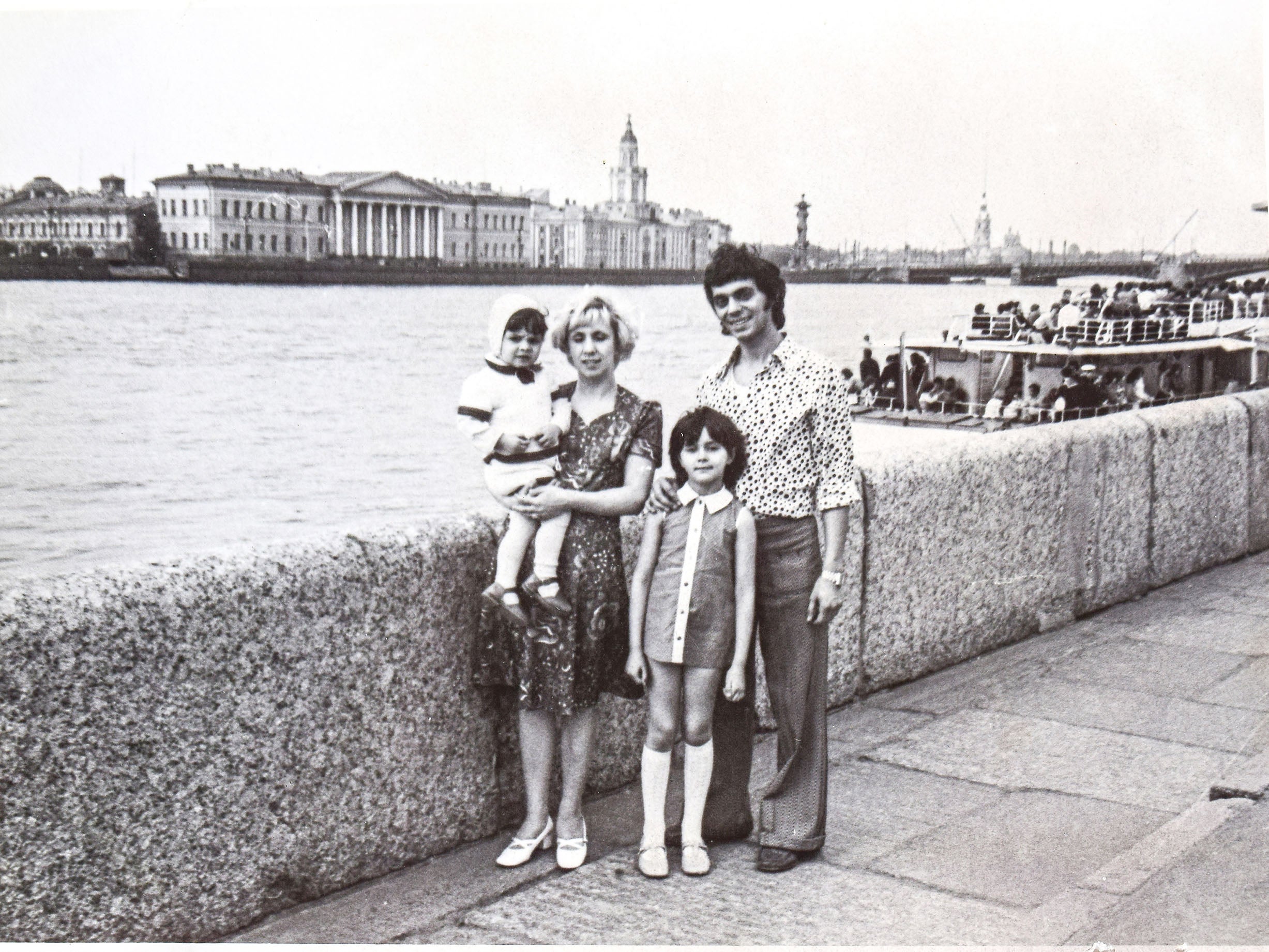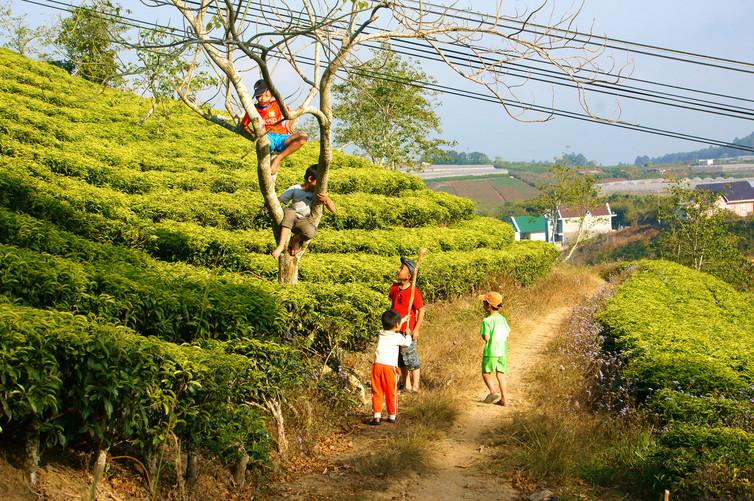Helicopter or lawnmower? Modern parenting styles can get in the way of raising well-balanced children
With the pressure on parents rising, we could all learn something from the concept of 'good enough parenting' proposed half a century ago

Your support helps us to tell the story
From reproductive rights to climate change to Big Tech, The Independent is on the ground when the story is developing. Whether it's investigating the financials of Elon Musk's pro-Trump PAC or producing our latest documentary, 'The A Word', which shines a light on the American women fighting for reproductive rights, we know how important it is to parse out the facts from the messaging.
At such a critical moment in US history, we need reporters on the ground. Your donation allows us to keep sending journalists to speak to both sides of the story.
The Independent is trusted by Americans across the entire political spectrum. And unlike many other quality news outlets, we choose not to lock Americans out of our reporting and analysis with paywalls. We believe quality journalism should be available to everyone, paid for by those who can afford it.
Your support makes all the difference.When many middle-aged people think back to their childhood, they remember roaming the streets with their friends during long, hot summers. Our parents threw us out the door in the morning and instructed us not to come back until dinnertime. Often in charge of younger siblings, we strayed further than we should have, got into trouble and, by the end of the summer, had a collection of triumphs, scars and memories for life.
But surely, such memories are just nostalgia? The bit about the sun always shining probably is. Yet one thing is certain – the level of parental involvement and supervision in the 1970s was not a fraction of what is expected today. Fast forward to 2014, and a woman was arrested for allowing her nine-year-old child to play in the park while she worked.
So what impact do increasing levels of parental involvement have on children? Let’s take a look at the evidence.
A recent survey of children aged eight to 12 found that indoor play is now the norm, a third have never splashed in a puddle and the distance that children are allowed to play from home has shrunk by 90 per cent since 1970.
Parenting hasn’t only changed in terms of what is considered safe for children. Parents now worry more about the impact of their parenting on their children, feeling pressured to provide a stream of stimulating activities in a way that would have once seemed absurd. This has led to the emergence of two types of related parenting styles: the “helicopter” and the “lawnmower”.
Helicopter parents, as the name suggests, spend a lot of time hovering. They always stay close to their children, ready to swoop in and direct, help or protect (usually before it is needed). Lawnmower parents are one step ahead of their children, smoothing their path and making sure nothing gets in their way. Common tactics of both include interfering significantly with their grown-up children’s lives, such as complaining to employers when their children don’t get a job.

But does enabling a childhood free from stress really help them in the long term? And what happens when children never have to get themselves out of tricky situations?
Not rocket science
As with anything, there is a middle ground. It doesn’t take a rocket scientist to realise that providing children with opportunities and support helps them to gain experiences, confidence and networks that they wouldn’t be offered in more adverse settings. But there is an important line between supporting children and wrapping them in gold-plated cotton wool.
Allowing children the freedom to take appropriate risks through outdoor play is essential for their development. Risky play does not mean placing children in grave danger, but instead allowing them to be children – climbing, jumping from heights and hanging upside down are good examples. Risky play allows children to test limits and solve problems. And, yes, this includes learning what happens when they overstretch themselves and fall.
But what about the abduction risk? Won’t children who are allowed outside unsupervised be kidnapped? Highly unlikely. Despite headlines suggesting otherwise, the risk of child abduction has not increased from approximately a 0.0005 per cent chance since data was first collected in the 1970s. And children are actually far more likely to be abducted by someone they know (even a parent) than the feared stranger lurking in the shadows.
Aside from risk, constantly intervening and providing opportunities for children is not good for their development. We may have forgotten it in our hot, hazy memories, but it is normal – and beneficial – for children to be bored. Boredom enhances creativity and problem solving, whereas constant input dulls imagination – even if that includes creative classes.
Continually hovering and doing things for children may also backfire. Children whose parents frequently intervene are more likely to experience anxiety. Although the link is not necessarily causal, being constantly rescued is likely to reduce your confidence. Meanwhile, when children play alone, they meet challenges – and learn to solve problems, honing their creativity skills in the process.
These early interactions may also have long-term consequences. Research with college students has found that the higher the degree of parental “helicoptering”, the greater the risk of student depression and anxiety. On the flip side, those students who are used to their parents enabling everything, are more likely to display traits of narcissism and entitlement. Anxiety is not good, but neither is overconfidence and an expectation that life should be easy.
Having said all of that, parental involvement, particularly from warm, loving – but firm –parents, is of course beneficial. While having confidence in their own abilities may contribute to a child’s sense of security, so will having supportive parents. And let’s not forget that although abductions may not have risen, the amount of traffic has, and freedom and risks need to be appropriate.
Striking the right balance may seem more complicated than it has to be. More than 50 years ago, paediatrician and psychoanalyst Donald Woods Winnicott introduced the concept of “good enough parenting”. He showed that parents who were loving and provided a stimulating environment – but also set boundaries and didn’t stress about doing enough – had children with the best outcomes.
Perhaps Winnicott was blinded by nostalgia thinking back to long, hot summers. But many experts today still believe it’s a strategy that makes a lot of sense for raising secure and independent children.
Amy Brown is an associate professor of child public health at Swansea University. This article was originally published on The Conversation (www.theconversation.com)
Join our commenting forum
Join thought-provoking conversations, follow other Independent readers and see their replies
Comments